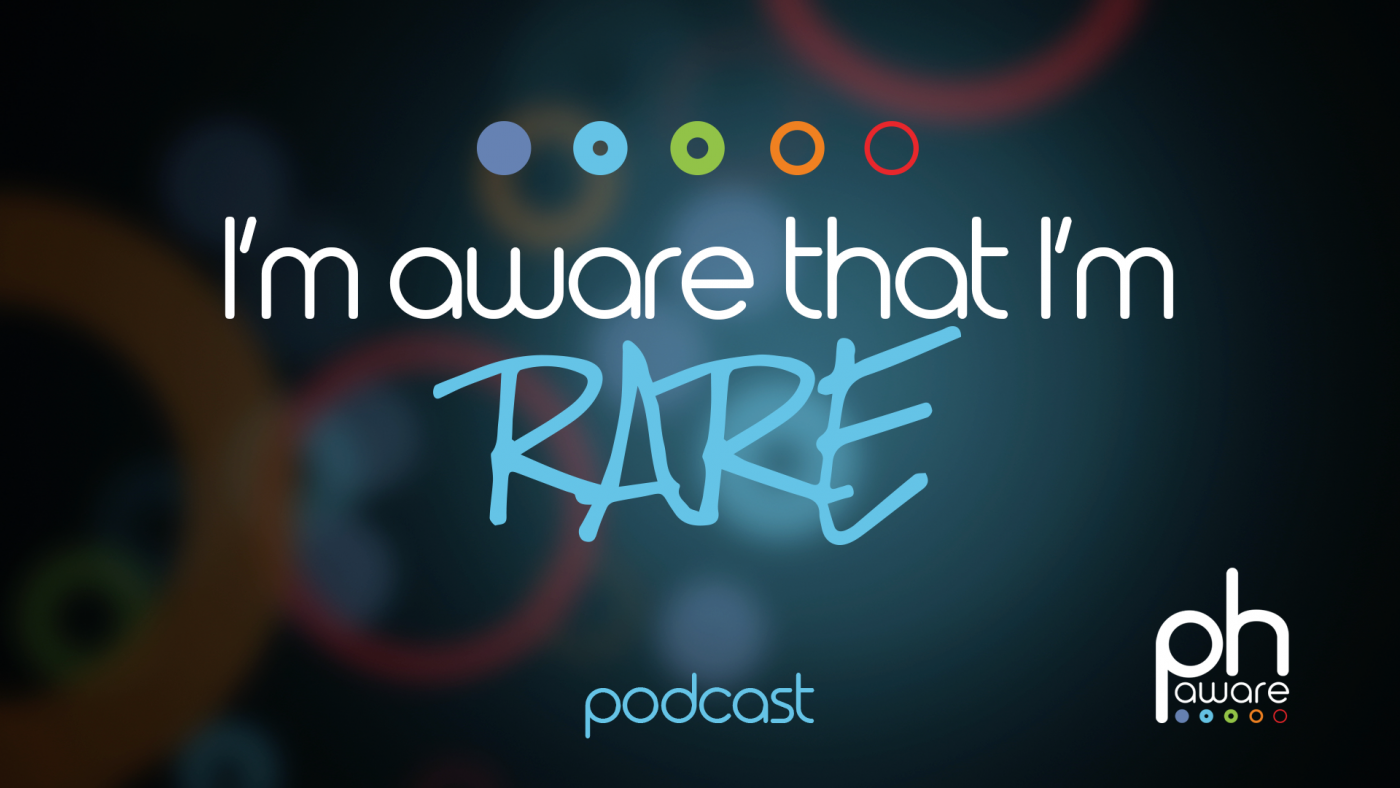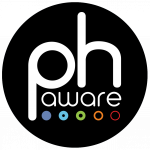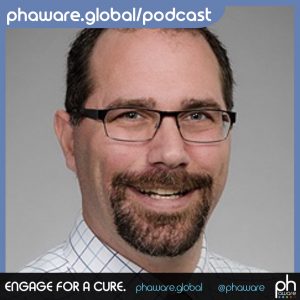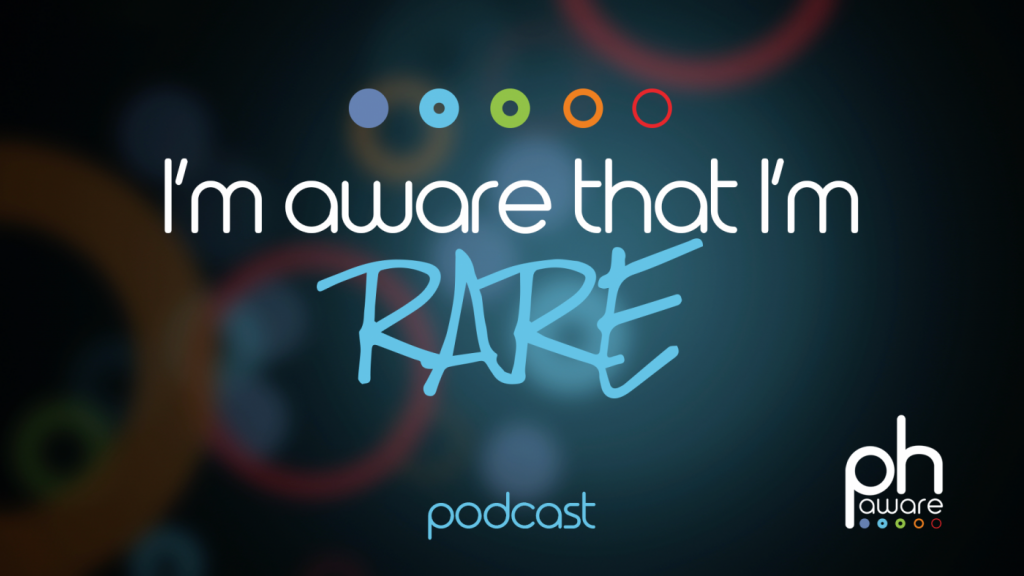Phaware Podcast: Dr. Peter Leary Lists Five Things Patients Should Ask About
Written by |

This podcast series, created and produced by phaware, is being offered as a regular guest feature on Pulmonary Hypertension News to bring the voices and life experiences of PH patients, family members, caregivers, healthcare specialists, and others to our readers. You may listen to the podcast directly, or read it via the transcript that runs below.
I’m Aware That I’m Rare: Dr. Peter Leary
The phaware™ interview
Dr. Peter Leary is a specialist in pulmonary and critical care medicine. He focuses on treating and doing research on pulmonary vascular disease. Here he breaks down the five points every pulmonary hypertension patient should discuss with their specialist during follow-up visits.
I’m Peter Leary, a pulmonary hypertension physician at the University of Washington, and I wanted to talk to you just a little bit today about follow-up.
So, what do I mean by follow-up? There is a lot of focus rightly so at the beginning of a pulmonary hypertension work-up. You’re a patient,  you’ve just come into the hospital, or you come into an out-patient clinic, and there are a lot of tests. There are a lot of conversations and there are a lot of discussions about what drug do I take? How much drug do I take? What are my options? What’s the prognosis?
you’ve just come into the hospital, or you come into an out-patient clinic, and there are a lot of tests. There are a lot of conversations and there are a lot of discussions about what drug do I take? How much drug do I take? What are my options? What’s the prognosis?
What is hugely important, though, is not just that first experience, but all the ones afterwards. Everyone’s heard the phrase “take two aspirin and call me in the morning.” I’ve always felt like the most important part of that phrase is the “and call me in the morning.” Everyone focuses on the “take two aspirin.” That’s what we do a lot in medicine, too. What drug are we going to give you? What dose are we going to give you? Do you have a disease for which that drug works?
What is hugely important is the “and call me in the morning.” Particularly early in the course of follow-up, we may find that we’ve given somebody a drug for pulmonary hypertension and they’ve gotten worse. Sometimes that means we didn’t give enough medication. Sometimes it means we didn’t give the right medication. Sometimes it means they don’t have pulmonary arterial hypertension or a disease that’s treated by these drugs.
So early in the course of follow-up, it’s very important to kind of take stock, keep an open mind both as a patient and as a doctor to say, “Is the disease that we think I have the disease that I actually have?” Medications are a great way to test that idea and check and see whether that’s true. It doesn’t mean that just because you feel worse after you started a PAH drug that it’s not the right drug. There are a lot of side effects, which most people can progress through and are left with the benefits of the drugs and not the side effects, but it should be a good jumping off point to say we need to keep an open mind as we go through follow-up.
Then, as a physician, what my goals are after I feel pretty confident in what the diagnosis is, is to kind of hit at least five points during any visit that I see for a patient with pulmonary hypertension. One of those is, is there evidence of disease progression? When I see a patient, I want to know are their good days slipping?
Everyone has good days and they’ve got bad days, and a bad day can happen for a lot of different reasons. It can happen because you had a Big Mac and a salt and two gallons of water and you feel terrible. You got a bad night’s sleep, the dog was barking, whatever it happens to be, but if the good days are slipping, when you say, “Hey, you know I had a good day last week, but I couldn’t go quite as far as I did before,” that worries me that the disease is progressing.
So as a pulmonary hypertension doctor, I want to take the information and say, “If I think the disease is progressing, do I need to be more aggressive in how I treat it? Do I need to increase the dose of the drugs my patient’s already on or start a conversation with them about whether or not it’s time to add a new drug or think about a different approach? This is where a lot of the routine things that happen, the blood work, the six-minute walk [test], the echo, the conversation, all of these things go into that impression of is the disease progressing or is it staying still on the regimen that we have?
The second part of any visit that I’ll have with a patient is to think about adverse drug events. Are you having side effects from your PH drugs? We know that pulmonary hypertension drugs are part cure and part poison. We know that they’ve got some side effects with them, and I try and make a point of explicitly talking about the side effects in every visit. Because sometimes people will ignore the side effects of a PH drug, they won’t bring them up at the visit. And then an opportunity is missed to really sit down and think about whether or not we have other medications that can treat the side effects, whether or not the pulmonary hypertension is under such good control that we can pull back a little bit and get rid of some of the side effects, make somebody feel better without compromising on their pulmonary hypertension control.
Or to really sit down and say, “Well, is this symptom you’re having, is this new problem you’re having, is it actually related to pulmonary hypertension or actually related to the drugs? Or are we missing the opportunity to treat a completely different medical problem that could make you feel better?” Did you get kidney stones along the way? Do you have something like that that really would be in your best interest to treat and could make you feel a lot better completely independent of pulmonary hypertension?
The third thing that I spend a lot of time with on every visit is how is it going with fluid? Are you carrying around a lot of extra fluid? Does your physical exam look like you have a lot of extra fluid? Is your weight going up?
I think taking time to say … All the patients in our clinic keep a diary. Every day they write down how much they weigh and just a quick 1 through 10, how are they feeling that day. If people’s weight is consistently going up, are they carrying around too much extra fluid? Is it time to take a visit to the nutritionist to think about, hey, what are some more ways that we can cut salt out of the diet? What are some more ways we can focus on not getting too much fluid in? What are some tricks that work for some people? Sucking on a lemon drop, things like that that may take away that feeling to go get a big glass of water without getting a big glass of water.
Do we need to increase medicines to make you pee out some of that extra fluid? So I find that oftentimes when people are feeling worse with pulmonary hypertension, it may be just a problem with all that extra fluid. If the heart gets stretched out, it is hard to squeeze a good solid beat out because it’s too stretched to do it. If you can get rid of that fluid, the heart comes into a much happier place and can beat much more strongly.
The next thing that we think about on almost every visit is lifestyle modifications. So part of that is the things that I was talking about, making sure we cut back salt, making sure we cut back fluid. We keep revisiting these over the course of the years that we work together, because it’s easy to go off the rails there at some point, but there are other things that are important, too.
So exercise is incredibly important. It used to be that we would say exercise will teach your body how to do more with less. There’s even some research that’s come out of Germany in the not too distant past that shows that exercise is changing the disease. It’s making the resistance to blood flow less. It’s allowing your heart to pump more. Doing structured exercise is important in this disease. Not only does it make people feel better and do more, it can actually potentially impact the disease itself.
So different exercise is different for everybody with PH. For some people a structured exercise program is five minutes every day being more active and then building that up over time. Some people, it’s much longer than that and so it’s very individualized, but whatever level it is I think that it’s important. So we spend some time talking about those kinds of lifestyle adaptations and changes that are not drugs, but are still hugely important in feeling good with pulmonary hypertension.
Then the last thing we do is we just run through any symptoms, any new symptom that a patient is having. As a pulmonary hypertension doctor, all my patients also have a primary care doctor, and it’s not my intention to kind of take over the role of a primary care doctor. But what I do want to make sure is that it’s very easy for patients and the entire healthcare team alike to say everything I feel is related to my pulmonary hypertension or the drugs that I’m on for pulmonary hypertension.
By going through those symptoms we can say, “Oh, that may be pulmonary hypertension, that may be a pulmonary hypertension drug. Oh, that symptom probably is not related to pulmonary hypertension.” So as a healthcare team, and by healthcare team I mean patients, families, doctors, primary care doctors, this allows people to help keep an open mind and find where are the other problems that we can help correct.
We’re always going to be focused on the pulmonary hypertension.We’re not going to forget about that, so one of the key aspects of this is if somebody has a bunion on their foot and we blame it on their pulmonary hypertension drugs, we’re never going to fix that foot pain. But if we instead call a spade a spade and treat the bunion, they’re going to feel a lot better than if we just blame it on their PH drugs.
My name is Peter Leary, and I’m aware that I’m rare.
EVERYBODY HAS A STORY. WHAT’S YOURS?
phaware wants to share your pulmonary hypertension story with their engaged global audience. Whether you are a patient, caregiver, or medical professional, they are enlisting PH community members from across the globe. Visit www.phaware.global/podcast to share your story and to be considered for a future episode.And learn more about pulmonary hypertension at www.phaware.global. #phaware #phawarepod
Note: Pulmonary Hypertension News is strictly a news and information website about the disease. It does not provide medical advice, diagnosis, or treatment. This content is not intended to be a substitute for professional medical advice, diagnosis, or treatment. Always seek the advice of your physician or other qualified health provider with any questions you may have regarding a medical condition. Never disregard professional medical advice or delay in seeking it because of something you have read on this website. The opinions expressed in this column are not those of Pulmonary Hypertension News or its parent company, Bionews Services, and are intended to spark discussion about issues pertaining to pulmonary hypertension.






Mauro Filicori
Best Information and suggestion for a newbie like myself.....
I am seriously thinking of sending a copy of this very interesting article by Dr. Leary to both my Pulmonologist and to my personal doctor.
I know that most Doctors do not like for their patient to be searching Dr. Web, but as the article points out, lack of contacts and communications between the parties involved: Doctors, Specialist and Family does lessen to probability of final success.
What does anybody think?
Mauro
Andrea Rice
Hi Mauro, it depends on the doctor I think. Just met my first lung doctor and he has three jobs, he sees patients, he works in intensive care with people worse than me, and is the lead teacher for teaching interns. So, I believe he is probably up-to-date on what's out there. If your Pulmonologist is open-minded like mine is I'm pretty sure he'd want to know about what the article is about and discuss it with you. Your gesture could go either way, but do it as an experiment just to see what this doctor thinks. If he/she says no thanks then you'll have your answer one way or the other. Good Luck!
Andrea Rice
Thank you for this article about Pulmonary Hypertension, I sort of always wanted to be a guinea pig but didn't know how to go about finding out how to actually be one.
I do expect a certain amount of knowledge when I have an appointment to see doctors and don't want to have to deal with some of them not knowing what's going on. So far, I'm just beginning my treatment for PH so I've seen a cardiologist, and just met my first Pulmonologist. Know what a cardiologist is because my grandmother saw one but didn't know what a Pulmonologist is. Between these two guys I am getting an education of a lifetime and don't have to sit in school to get it. It's absolutely mind-blowing and now am realizing just how complicated the human body really is. I've thought about getting a picture of the inside of the human body so I know where everything is when I am in discussion with them.
While the suggestions for this article are great, I don't believe I can follow all of them to a perfect T. I cheat, just like everyone else am grateful I don't have a salt shaker and pepper shaker on my table at home. I have chosen to eat foods that have low-salt because when I eat 2 much salt I get dizzy so it's a no-brainer for me to choose not 2 add extra salt on foods. I don't like the feeling of being dizzy.
When I eat low-fat foods I gain weight but when I eat foods that are made with butter and are fattening I lose weight. Ironic.
I don't like to write in a diary the daily activities of my life. Seems more to me like counting calories for a diet plan. No thanks. Watching process sugary foods can be difficult at times friend of mine proved to me that I'm a sugar addict and I eat chocolate (yum) to feed the craving without enjoying the taste. At first didn't believe it, but I tried it and within seconds after buying candy it was gone!! So, instead of eating candy I try 2 eat eclairs and check the salt content or New York Cheesecake instead. I don't buy it as much so I won't be eating it as much either, I just wait 4 the urge my body is saying, then I go out and buy something sweet, eat it, and I'm done till the next time. It's a work in process. Stockpiling fruit which is better but fresh doesn't last and the stuff in containers has added crap, can't win, but I'm still being proactive about it.
So I'd like to thank the doctor for writing the article, sorry can't remember your name, short-term memory loss from taking medicine where this is a side effect. No more from now on.
If there's a need for some human guinea pigs where there's no pain involved, contact me, I'd like to check into this new area.
Thanks for listening.